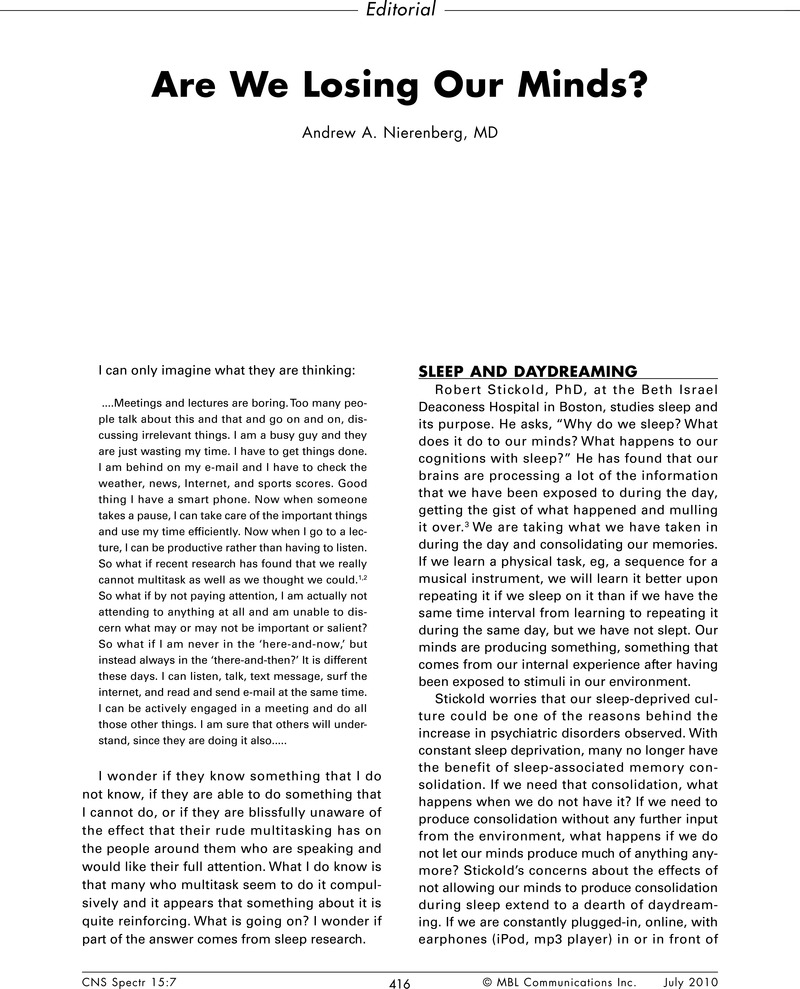No CrossRef data available.
Article contents
Are We Losing Our Minds?
Published online by Cambridge University Press: 07 November 2014
Abstract
An abstract is not available for this content so a preview has been provided. As you have access to this content, a full PDF is available via the ‘Save PDF’ action button.

- Type
- Editorial
- Information
- Copyright
- Copyright © Cambridge University Press 2010
References
REFERENCES
1.Ophir, E, Nass, C, Wagner, AD. Cognitive control in media multitaskers. Proc Nat Acad Sci. 2009;106(37):15583–15587.Google Scholar
2.Lin, L. Breadth-biased versus focused cognitive control in media multitasking behaviors. Proc Nat Acad Sci. 2009;106(37):15521–15522.Google Scholar
3.Stickgold, R, Walker, MP. Sleep-dependent memory consolidation and reconsolidation. Sleep Med. 2007;8(4):331–343.Google Scholar
4.Carr, N. Is Google making us stupid? What the Internet is doing to our brains. Available at: www.theatlantic.com/magazine/archive/2008/07/is-google-making-us-stupid/6868. Accessed June 14, 2010.Google Scholar
5.Richtel, M. Hooked on gadgets, and paying a mental price. The New York Times. June 6, 2010. Available at: www.nytimes.com/2010/06/07/technology/07brain.html. Accessed: June 14, 2010.Google Scholar
6.Sallinen, M, Holm, J, Hirvonen, K, et al. Recovery of cognitive performance from sleep debt: do a short rest pause and a single recovery night help? Chronobiol Int. 2008;25:279–96.Google Scholar


